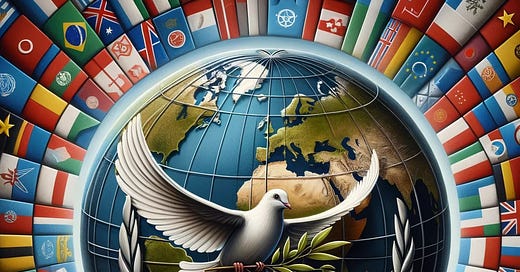In a recent report from the Foundation for the Defense of Democracies (FDD), Russian President Vladimir Putin's global stature took another hit as the Organization for the Prohibition of Chemical Weapons (OPCW) made the unprecedented move of ejecting Russia from its 41-member Executive Council, favoring Ukraine to take one of the vacant seats in the OPCW’s Eastern European Group. This decision underscores a significant blow to Russian influence and prestige on the international stage. The report, aptly titled "For Russia, A Year of Setbacks at the OPCW," emphasizes the pressing challenge for the United States and its allies to hold Russia accountable for flouting the Chemical Weapons Convention—the treaty underpinning the OPCW.
Adding to the controversy is the grave issue of Russia's continued amassing and use of chemical weapons, a matter that has been somewhat overshadowed. Despite its aggressive tactics, including attempts to assassinate political adversaries with chemical agents like the one against Alexey Navalny—a prominent critic of Putin who tragically died in a Siberian penal colony after multiple poisonings—the country remains a member of the OPCW. Navalny's death, according to Andrea Stricker, deputy director of FDD’s Nonproliferation and Biodefense Program, should be a call to action for Western governments to initiate punitive measures against Putin, starting with the OPCW.
Critics see Navalny’s death as a blatant disregard by Russia for international norms and laws concerning chemical weapons, highlighting the OPCW's failure to enforce meaningful penalties or demand accountability for Russia's continued possession of chemical agents, its utilization of Novichok nerve agent against Putin's critics, and threats of chemical warfare in Ukraine. Stricker advocates for a concerted effort by nations opposed to Russia's actions in Ukraine to limit Moscow's influence and leadership in international bodies, thereby preventing Russia from using these platforms to spread misinformation and shield itself from accountability.
Looking forward, the July 2024 Executive Council meeting of the OPCW presents a pivotal chance for the international community to demand accountability from Russia, potentially using the Syria case as a blueprint. Failure by Moscow to adhere to the convention could lead to a suspension of its OPCW privileges, marking a critical step in curtailing Russian influence and holding it accountable for its actions on the global stage.




